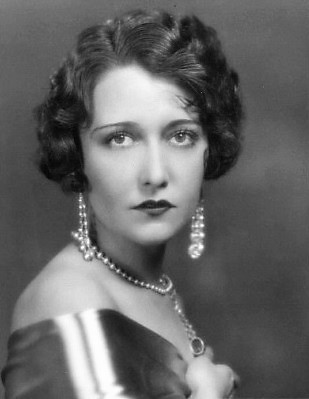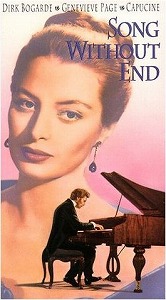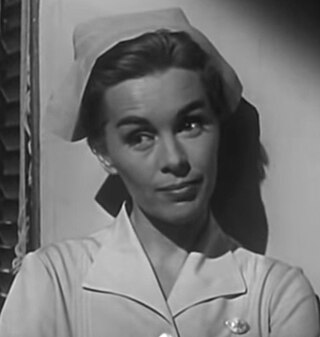Related Research Articles
Columbia Pictures Industries, Inc., commonly known as Columbia Pictures, is an American film production and distribution company that is the flagship unit of the Sony Pictures Motion Picture Group, a division of Sony Entertainment's Sony Pictures, which is one of the "Big Five" film studios and a subsidiary of the multinational conglomerate Sony Group Corporation.

Capucine was a French fashion model and actress known for her comedic roles in The Pink Panther (1963) and What's New Pussycat? (1965). She appeared in 36 films and 17 television productions between 1948 and 1990.

Rita Hayworth was an American actress, dancer, and pin-up girl. She achieved fame in the 1940s as one of the top stars of the Golden Age of Hollywood, and appeared in 61 films in total over 37 years. The press coined the term "The Love Goddess" to describe Hayworth, after she had become the most glamorous screen idol of the 1940s. She was the top pin-up girl for GIs during World War II.

Harry Cohn was a co-founder, president, and production director of Columbia Pictures Corporation.

Cheryl Lynn Holdridge was an American actress, best known as an original cast member of The Mickey Mouse Club.

Richard Quine was an American director, actor, and singer.

William Castle was an American film director, producer, screenwriter, and actor.

Sam Katzman was an American film producer and director. Katzman's specialty was producing low-budget genre films, including serials, which had disproportionately high returns for the studios and his financial backers.

Screen Gems is an American film production company owned by Sony Pictures Entertainment, a subsidiary of Japanese multinational conglomerate, Sony Group Corporation. The Screen Gems brand has served several different purposes for its parent companies over the decades since its incorporation, initially as a cartoon studio, then a television studio, and later on as a film studio. The label currently serves as a film production that specializes in genre films, mainly horror.

Dorothy Sebastian was an American film and stage actress.

Constance Mary Towers is an American film, stage, and television actress. She gained prominence for her appearances in several mainstream 1950s films before transitioning to theater, starring in numerous Broadway productions through the 1970s. Her accolades include two Emmy Award nominations.

Song Without End, subtitled The Story of Franz Liszt, is a 1960 biographical film romance about Franz Liszt made by Columbia Pictures. It was directed by Charles Vidor, who died during the shooting of the film and was replaced by George Cukor. The film stars Dirk Bogarde, Capucine, and Geneviève Page.

Majel Coleman was an American film actress and model from Mason, Ohio. Most of her 11 film credits are silent movie features.

Agnes Vernon was an American film actress of the silent era. While still in her teens, she experienced a meteoric ascent from obscurity to box-office sensation. After turning twenty-three and a movie career fading away, she abandoned the silver screen forever. Vernon performed in over 90 films between 1913 and 1922. She completed most of her roles under contract with Universal Pictures.

Constance Worth was an Australian actress who became a Hollywood star in the late 1930s. She was also known as Jocelyn Howarth.

Joan Perry was an American film actress.

Bryna Productions is an American independent film and television production company established by actor Kirk Douglas in 1949. The company also produced a handful of films through its subsidiaries, Michael Productions, Joel Productions and Douglas and Lewis Productions, and outside the United States through Brynaprod. Other subsidiaries included Eric Productions, which produced stage plays, Peter Vincent Music, a music publishing company, Bryna International, a photographic service company, and Public Relations Consultants, which supervised the publicity of its early films. Douglas named the main company after his mother, Bryna Demsky, while its primary subsidiaries were named after his sons: Michael Douglas, Joel Douglas, Peter Douglas and Eric Douglas. In 1970, Bryna Productions was renamed The Bryna Company, when Douglas welcomed his children and second wife into the firm. Nevertheless, Michael, Joel and Peter, wanting to establish individual identities, went on to form their own independent film production companies.
Dorothy Cooper was an award-winning American screenwriter and TV writer active in the 1940s through the 1970s.

Irving Briskin (1903–1981), was an American film producer of more than 200 films during the 1930s and 1940s. He was the brother of Samuel J. Briskin and Murray Briskin, both also film producers.

Bek Nelson was an American model and showgirl who turned to acting at age 29, making seven films and two dozen television shows in her first three years.
References
- ↑ "3 Apr 1962, 54 - The Los Angeles Times at Newspapers.com". Newspapers.com. Retrieved 2019-01-27.
- 1 2 "13 Jul 1966, 41 - Chicago Tribune at Newspapers.com". Newspapers.com. Retrieved 2019-01-27.
- ↑ "21 Jan 1965, Page 19 - Albuquerque Journal at Newspapers.com". Newspapers.com. Retrieved 2019-01-27.
- ↑ "16 Jul 1965, Page 9 - Pittsburgh Post-Gazette at Newspapers.com". Newspapers.com. Retrieved 2019-01-27.
- ↑ "12 Jun 1963, 20 - The Indianapolis News at Newspapers.com". Newspapers.com. Retrieved 2019-01-27.
- ↑ "6 May 1986, Page 62 - Asbury Park Press at Newspapers.com". Newspapers.com. Retrieved 2019-01-27.